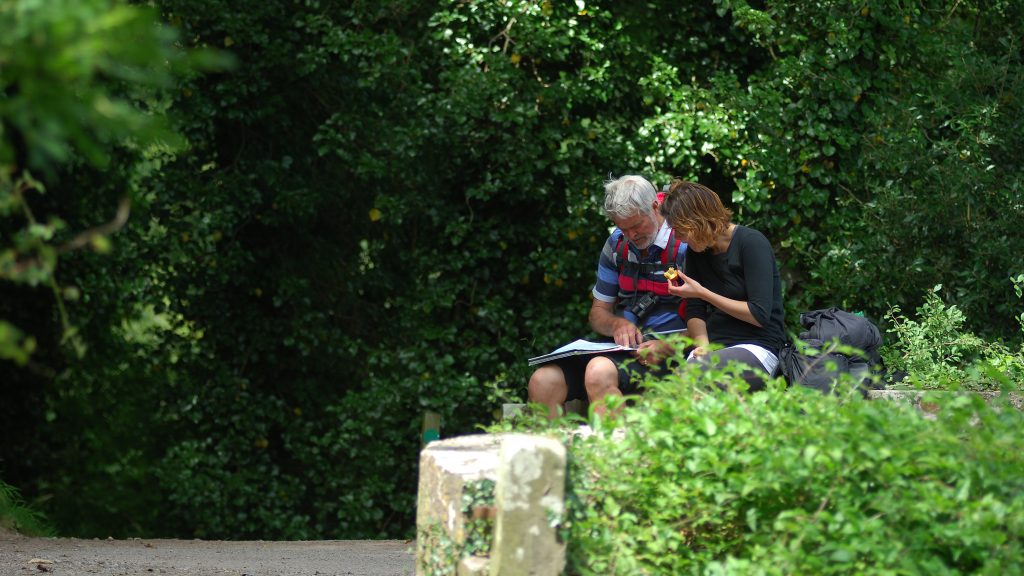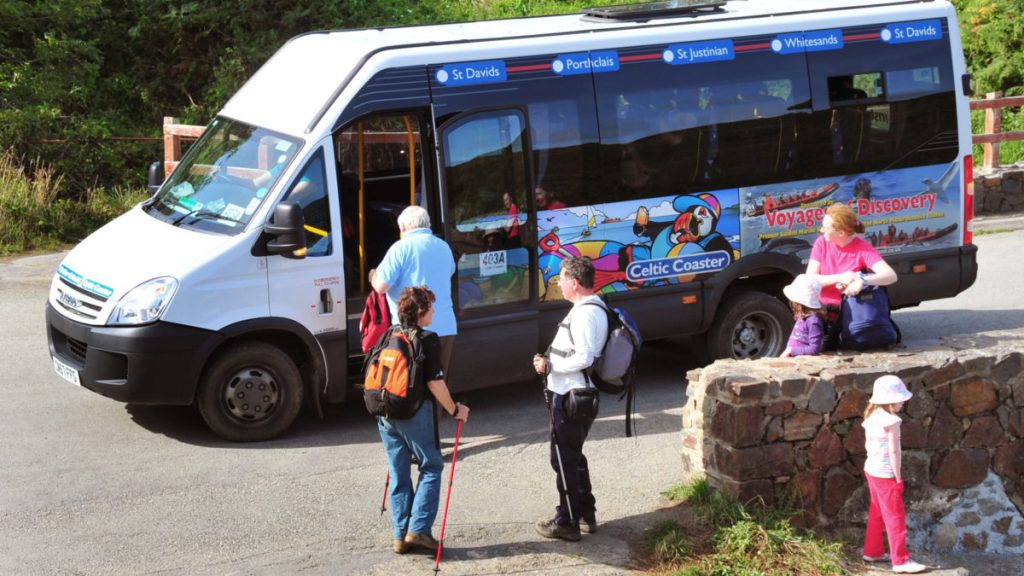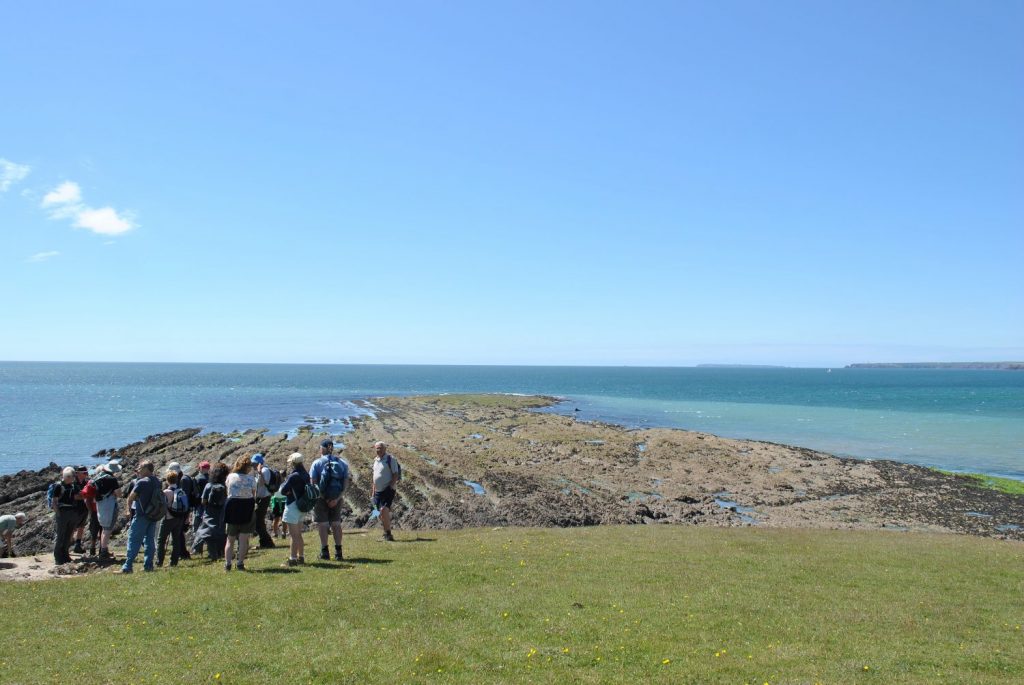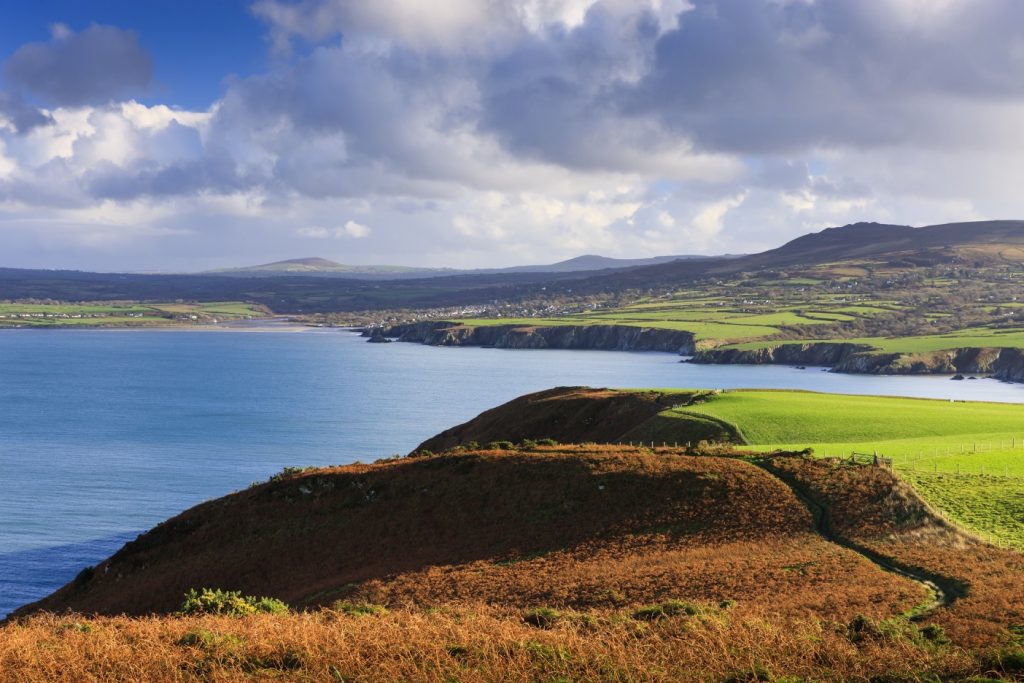2020 gave many of us the time to slow down and think about all the things we hold dear, from people and places to the basic freedom of being able to spend time in our beautiful National Parks. It was also a stark reminder that all of our lives are connected and what we as individuals do can have an incredibly powerful impact on each other and on nature – either positively or negatively.
The Pembrokeshire Coast is one of the smallest of the UK’s National Parks, but also the gateway to a range of stunning landscapes, archaeological remains and the home of many animals and plants that have disappeared from other parts of the UK. While protecting these special qualities is one of the key roles of the Park Authority, it’s not something we can do alone.
We work closely with landowners and partners to help look after these incredible landscapes, but as more people discover this beautiful part of the world, a sustainable future is dependent on all of us working together. The choices we all make help to keep the National Park safe and spectacular – as a place to live, work and visit.
How can you help?
Take the Pembrokeshire Coast National Park Pledge. We all have the power to make a positive contribution to the future of Britain’s only truly coastal National Park. Let’s make this moment matter – for now and for future generations.
We’re reaching out to everyone to make your mark on the Pembrokeshire Coast in a way that matters most of all – by treading lightly and leaving a legacy of only footprints.
Respect the Park’s special landscape and its wildlife
What you can do:
- Place all your rubbish in the bin, or take it home with you.
- Take part in a five-minute litter pick at your favourite beach, or look for volunteering opportunities in the National Park.
- Always use designated public toilets.
- Minimise your impact on air quality by reducing car journeys and travelling on foot, or by bike, train or bus instead.
- Respect wildlife and leave it undisturbed.
Lend a helping hand
The National Park Authority is keen to encourage people to get involved in several aspects of its work and there are many different reasons why people choose to volunteer.
Some do it to keep fit and active, some to learn and develop new skills and some to give something back to the National Park and their local communities.
Others volunteer to improve their own wellbeing, or simply to get out, meet new people and be part of a team.
Whatever reasons people have for volunteering in the National Park, they find it fun, challenging and rewarding.
For more information please email Volunteer Officer Rebecca Evans or call 01646 624847.
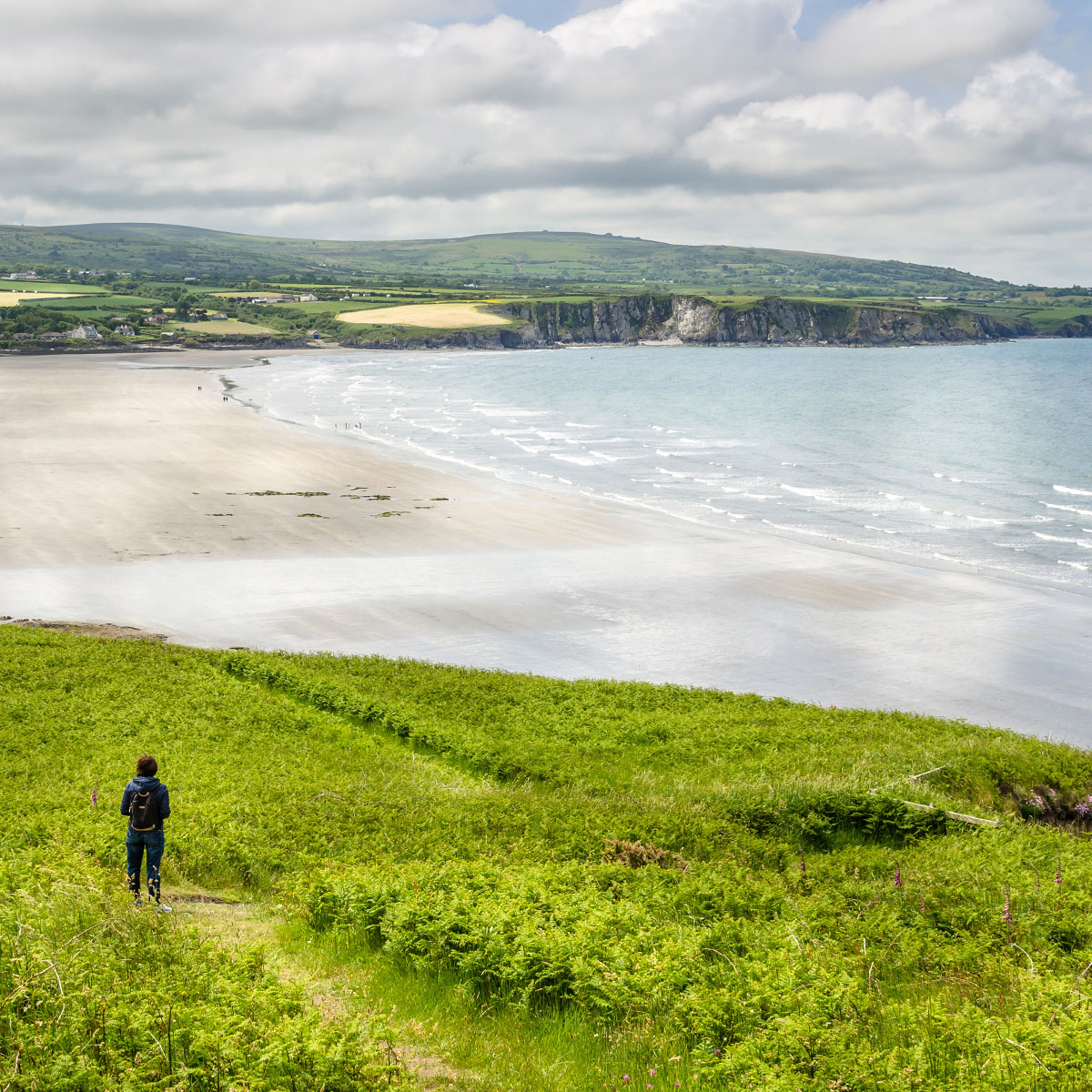
Respect local communities and other people
What you can do:
- Only camp in designated campsites.
- Keep dogs on a lead around livestock and be sure to clean up their mess.
- Park legally and responsibly. Keep highways and gateways clear and leave plenty of room for others, including emergency vehicles and tractors, to pass safely.
- Respect the fact that many come to the National Park for its tranquillity and make sure you don’t spoil their peace.
- Shop locally and support Pembrokeshire producers and businesses.
Take a walk on the wild side… but don’t spend the night there too
We call wild camping in tents or camper vans fly camping, because it’s not legal and we don’t welcome it. Please use a campsite instead.
As well as making a contribution to a local business and helping them to recover from difficult times, you will also be able to dispose of your rubbish and waste water properly. Litter bins and public toilets can’t cope with camping waste and our wild plants don’t like your washing-up water.
Even if you are a clean and respectful camper, others are less so and may copy you but leave a mess behind.
Remember that wildlife needs time off too! By using a designated campsite, you will make sure that our wildlife and wild places get a break to feed, grow and rest without being disturbed by people’s presence.
Keep yourself and others safe
What you can do:
- Dress for the outdoors and wear suitable footwear.
- Only swim on lifeguarded beaches.
- Be aware of tides and changing weather conditions.
- Dispose of barbeques responsibly.
- Follow any social distancing guidelines in place.
Put your best shoe forward
Both the weather and the terrain in Pembrokeshire can be extremely changeable. Last year emergency services received numerous call-outs from people who’d slipped or sustained injuries as a result of wearing inadequate footwear.
Opt for a pair of shoes with a good sole (blackthorn is notoriously sharp and can cause a nasty infection if it pierces the skin) and ample ankle support.
Although there are walks suitable for everyone within the National Park, your safest bet is to treat it as a walk in the mountains and choose your footwear accordingly.
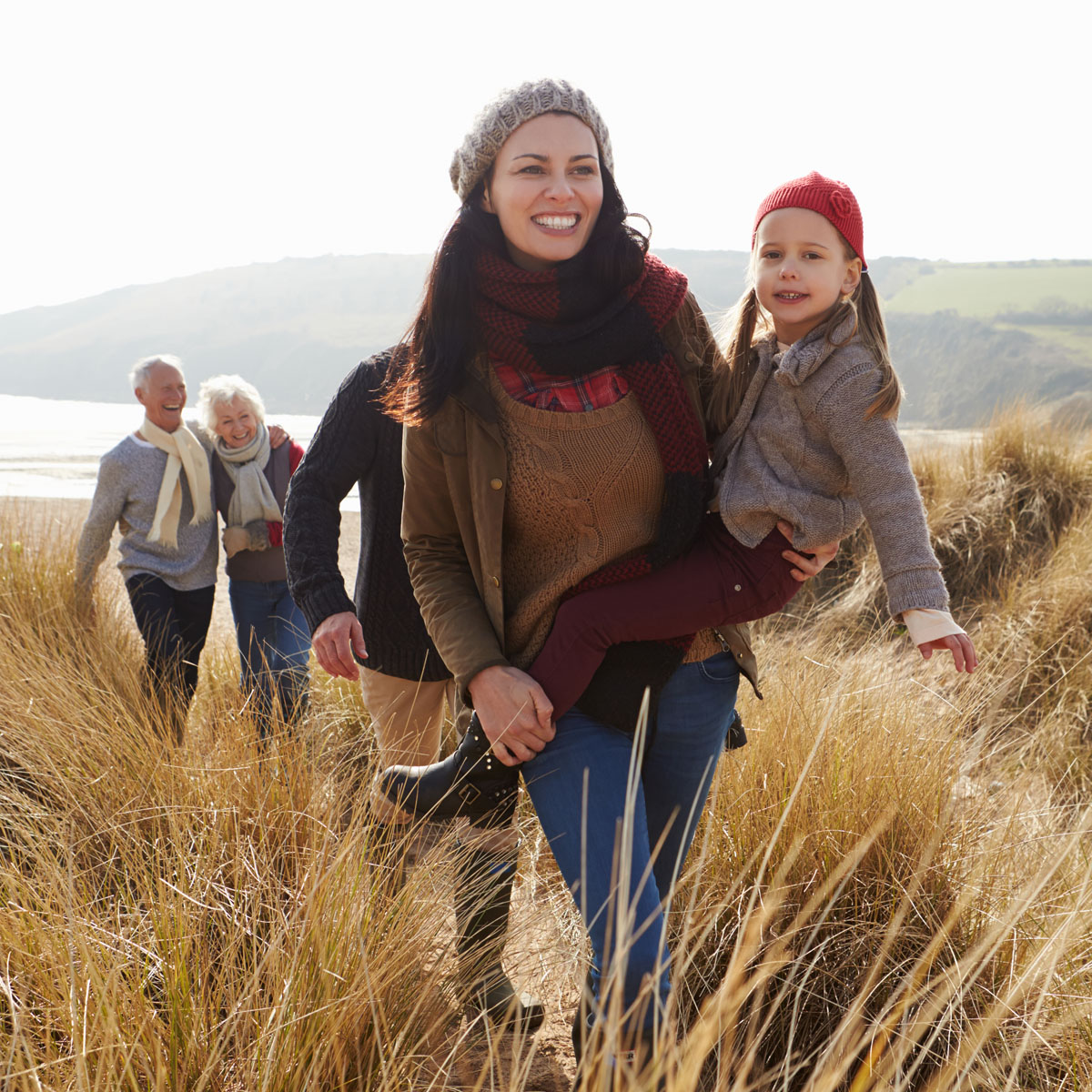
A Pembrokeshire for all seasons
Everyone knows that a glorious summer’s day in Pembrokeshire is tonic for the soul. But if you’re not too fond of crowds and feel the urge to take the road less frazzled, why not consider visiting during some of the traditionally quieter months?
Many of the Park’s best-kept secrets unfold during this time and a visit offers so much variety.
Every year between the end of August and the beginning of November, more than 100 Atlantic grey seal pups are born on remote beaches and coves along the Pembrokeshire Coast. Further inland, the autumn months bring a blaze of colour to the banks of the usually tranquil Daugleddau waterway, welcoming flocks of migrating birds such as the golden plover, lapwing, redwing and goldeneye.
Winter comes with unexpected charms in the National Park – whether you’re enjoying the haunting beauty of an empty windswept beach, or celebrating Hen Galan (The Welsh New Year, celebrated on 13 January) in the north of the county. It’s also on clear winter nights that the Pembrokeshire sky comes alive, offering the magic of Milky Way spotting and stargazing.
While most people are still planning their summer holidays, spring brings its own unique set of delights, with Pembrokeshire’s hedgerows, coastal slopes and woodlands turning into colourful tapestries of wild flowers, including thrift, bluebells and the ubiquitous yet cheery Welsh daffodil.
In a nutshell, there’s always a good time to visit the Pembrokeshire Coast National Park!
